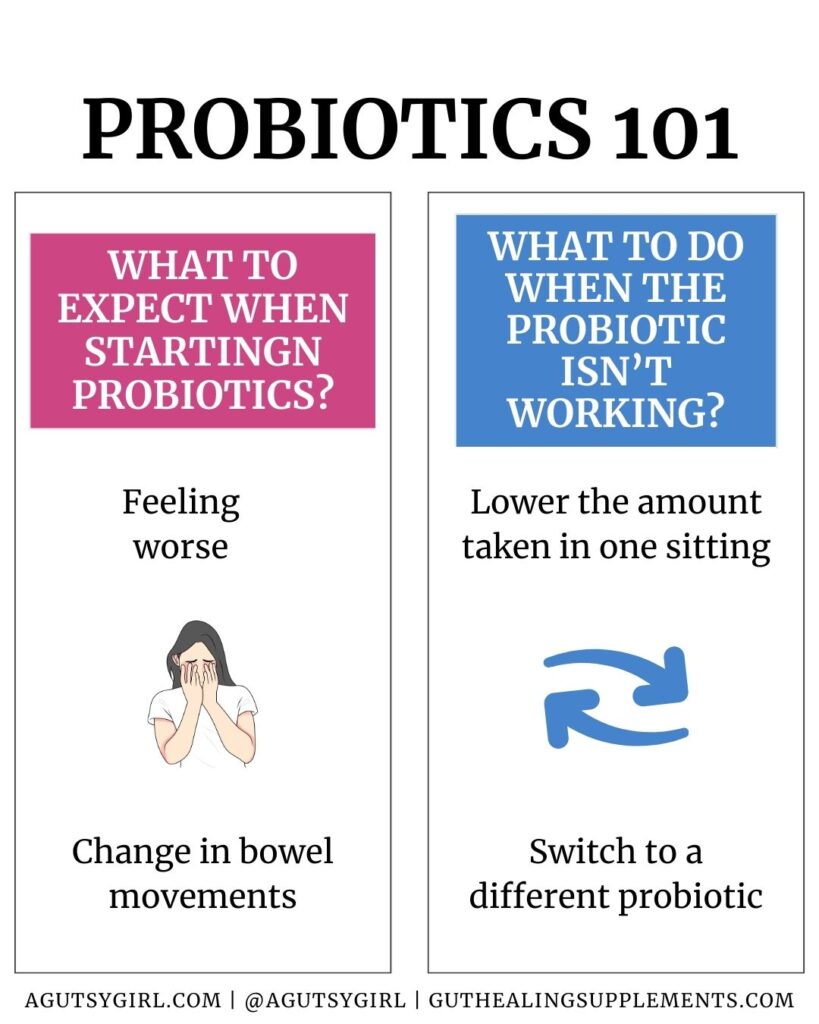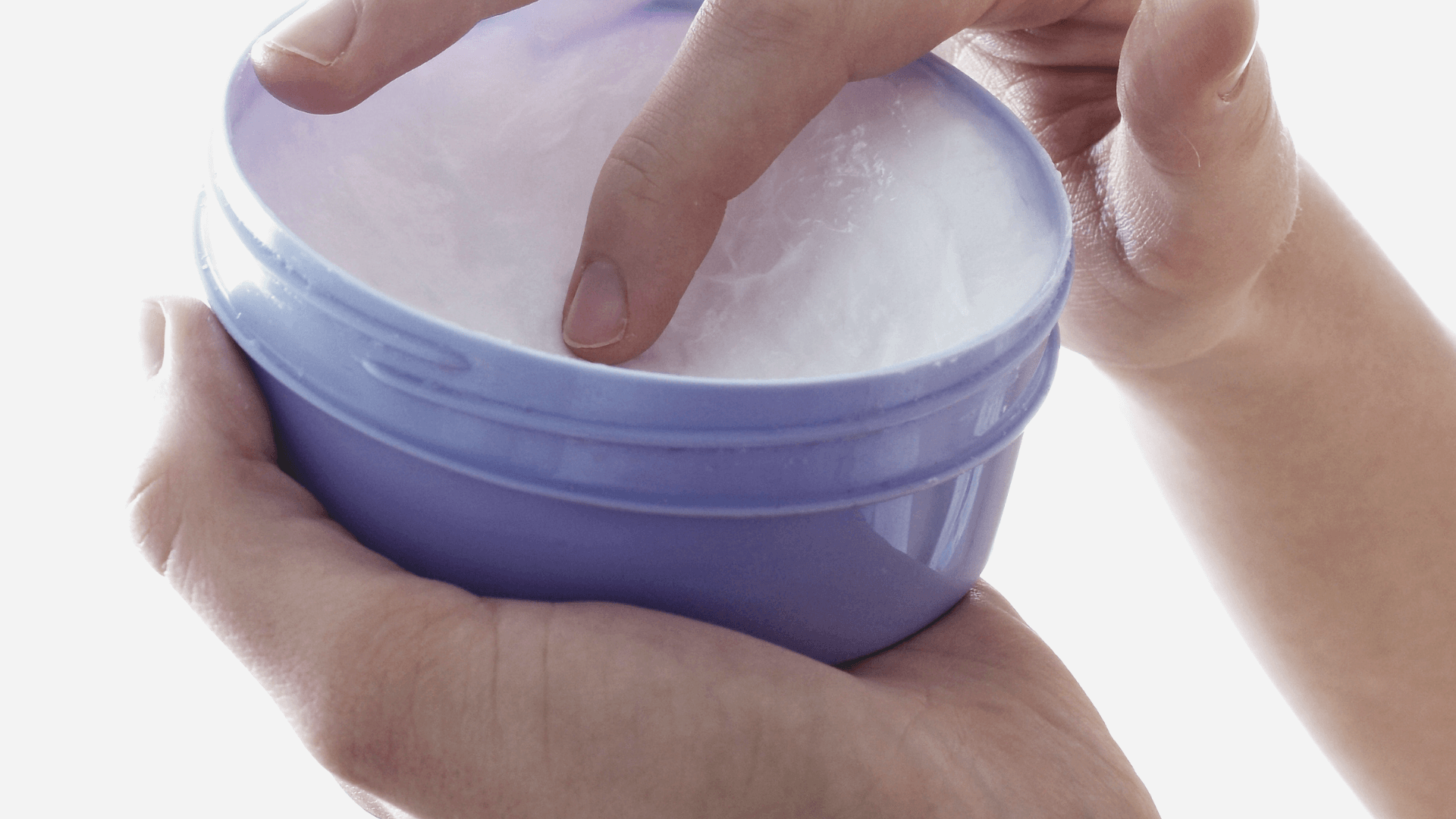Today I’m laying out what to expect when starting probiotics.
Here is a common question I get,
I just started taking a new probiotic. How come I feel worse?
Let me help you with this today.
What to Expect When Starting Probiotics
Click HERE to save this post for later.

There are two main things you can expect when starting probiotics (in general or a new one):
Feeling Worse
No one wants to hear this, but it’s the truth.
You could have more gas, bloating, and/or general discomfort.
This is because your body is adjusting to the new (and varied) bacteria.
Change in bowel movements
One of the benefits of taking a probiotic is that they can give more regular and well-formed stools.
However, in the beginning, it’s common to have loose stools or even constipation.
The above two things should not last more than about a week.
What to Do When the Probiotic Isn’t Working?
If either/both of the above happen, here are the steps I’d take:
Lower the amount taken in one sitting
You might not be able to do this will all probiotics.
The probiotic needs to be good and strong enough where opening the capsule and pouring some out into a smoothie, etc. will still be effective.
This is another reason I love the Just Thrive Probiotic.
I am able to open it up and use a small amount for my children.
You can try this for a few days to see if that helps.
Switch to a different probiotic
If lowering the amount does not help, consider switching to a different probiotic.
Don’t just haphazardly switch or you could end up with a probiotic that contains similar strains and species (that you were unknowingly reacting to).
Find one that’s well-researched yet different from what you were just taking.
If switching to a different probiotic still doesn’t work, then perhaps a probiotic is not for you right now.

In fact, there are two populations of people who might consider not taking a probiotic at all.
They include:
- Those with SIBO, which I have discussed in depth already via Should I Take a Probiotic with SIBO HERE?
- People who have a highly compromised immune system.
In both scenarios, don’t just decide to or not to use a probiotic.
Work with your medical practitioner to determine what will be best for you.
But which probiotic is right for which condition?
This is a very complex issue.
Remember, you must look at everything in the probiotic. This includes probiotic strains and species.
It also includes things like additives, fillers, or binders.
While I have been very clear about my probiotic of choice, Just Thrive Probiotic, I also want to share about strains and species that are not in their formula.
And this isn’t necessarily a good or bad thing. Instead, it’s a unique-to-you situation. There is so much to take into consideration when choosing a probiotic.
And honestly? I just want you to be choosing the very best one for you.
However, especially after studying more on probiotics, I do still believe that the Just Thrive Probiotic is one of the very best out there!
And do you know the very best way to track if a probiotic is or is not working for you?
- Start with this question: How is this working for me? And then…..
- Record, record, and then record a little more. I’m helping you with my gut healing journaling SYSTEM.
If you enjoyed this post, you might also enjoy:
Xox,
SKH
🤰 bloating be gone! weight loss through optimal gut health for women
💃ʜᴇᴀʟ ʏᴏᴜʀ ɢᴜᴛ. ʜᴇᴀʟ ʏᴏᴜʀ ʟɪfe.
🫶🏻 founder gutbyome.com

![How to Deal with Overwhelming Emotions (in order to heal your gut) [Episode 58 with Kimberly Lucas]](https://agutsygirl.com/wp-content/uploads/2022/10/ep-58-Kimberly-Lucas.png)




